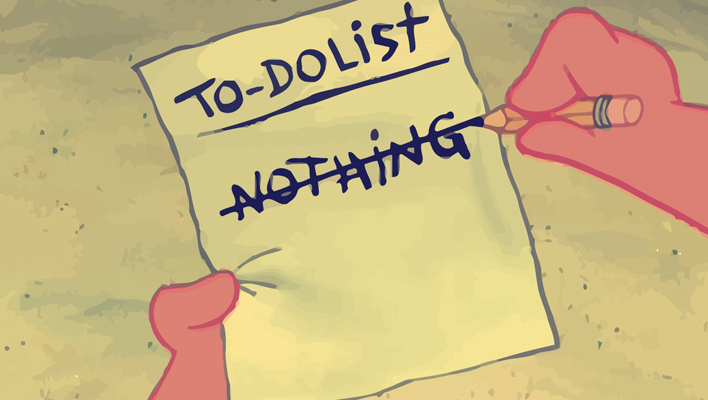
In today’s fast-paced world, the concept of
doing nothing often carries a negative connotation, being unfairly associated
with laziness or inefficiency. However, embracing periods of inactivity can
actually lead to numerous mental and physical health benefits. This article
explores the advantages of allowing oneself to take breaks and simply do
nothing.
One of the most significant benefits of doing
nothing is enhanced mental clarity. In moments of stillness, the mind is freed
from the constant bombardment of stimuli and tasks that demand attention. This
mental downtime allows for the consolidation of memories and the processing of
information. Neuroscientific research has shown that during restful periods,
the brain engages in a unique process known as the default mode network, which
is crucial for creative thinking and problem-solving. By stepping away from
active tasks, individuals may find that they return to their work with
refreshed ideas and perspectives.
Engaging in periods of inactivity is also an
effective way to manage stress. The relentless pursuit of productivity can lead
to burnout, a state of emotional, physical, and mental exhaustion caused by
excessive and prolonged stress. Doing nothing can act as a reset button,
reducing cortisol levels—the body's stress hormone—and promoting a state of
calm. Activities like sitting quietly in a park, lying on the grass, or simply
staring out the window without an agenda can help lower stress and enhance
overall well-being.
Taking time to do nothing can also improve
relationships. In the absence of specific tasks or distractions, individuals
are more likely to engage in meaningful conversations and connect with others
on a deeper level. This quality time, free from the pressures of productivity,
can strengthen bonds with friends and family, fostering a greater sense of
community and belonging.
There are notable physical health benefits
associated with taking time to relax and do nothing. Research indicates that
rest can reduce the risk of heart disease by lowering blood pressure and heart
rate. Furthermore, relaxation practices like meditation and deep breathing can
improve sleep quality, boost the immune system, and enhance overall longevity.
While the ethos of many modern societies
glorifies constant productivity, the benefits of doing nothing should not be
underestimated. By incorporating deliberate periods of inactivity into our
routines, we can enhance our mental clarity, reduce stress, improve our
relationships, and support our physical health. In the balance between action
and inaction, sometimes the best thing we can do is nothing at all. Thus,
embracing the art of doing nothing is not only beneficial but essential for
maintaining a balanced and healthy lifestyle.
Questions (Select if the following sentences are true or false)
·
Doing nothing is often viewed positively in
today’s society.
·
The brain’s default mode network is active
during periods of rest and is important for problem-solving.
·
Constant activity without breaks can lead to
decreased stress levels.
·
Engaging in periods of inactivity can help
reduce the body's cortisol levels.
·
Taking time to do nothing has no impact on
personal relationships.
·
Resting can lower the risk of heart disease by
reducing blood pressure and heart rate.
·
Increased productivity is the only advantage of
not engaging in regular periods of rest.
· Meditation and deep breathing are examples of activities that can improve sleep quality and boost the immune system.